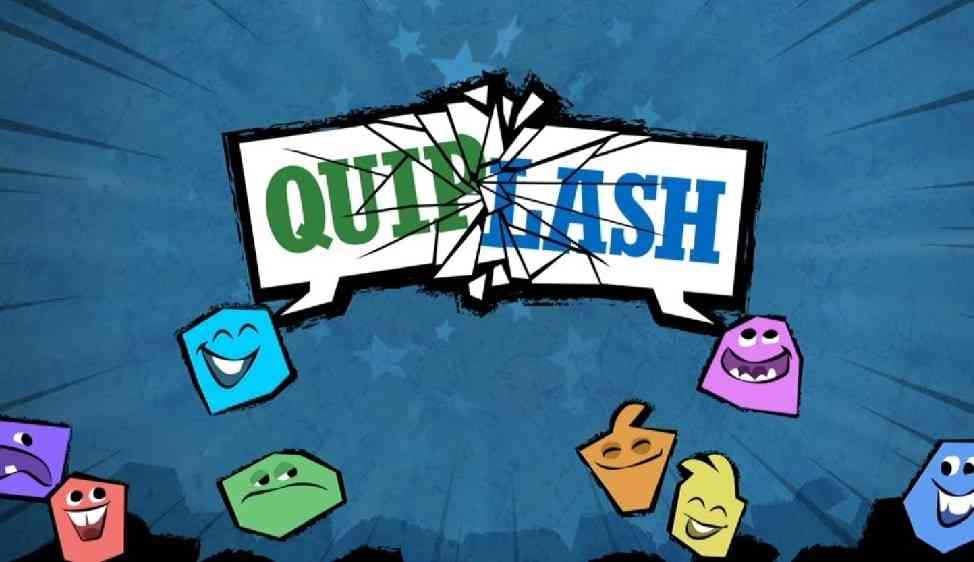Quiplash was originally created by and available to play on Jackbox Games. Its target audience is both adults and children above 12, and suitability for each group can be adjusted by toggling the family friendly mode. Quiplash is a judging game where players can vote on each other’s responses to various prompts.
In Quiplash, players repeatedly judge between two responses to a prompt based on their wittiness and humor. The game can help facilitate group bonding through vulnerable and funny moments, but can also cause heightened sensitivity and anxiety toward others’ perceptions of oneself.
When I played Quiplash for the first time, I felt anxious about what people would think of my responses. Unlike many other games, where your ability to excel depends on skill and practice, Quiplash is literally about your internal wit and character! The results of the game felt so personal, which made it all the more intimidating. During the game, one person consistently received the most votes, and one person consistently received the least. I was at the bottom of the leaderboard for a while, which was discouraging because it almost felt like a personal attack, and I felt like my friends would think less of me. When others ended up at the bottom of the leaderboard, I could also sense bitterness or disappointment radiating through their facial expressions or a quiet, “Dang”.
Moreover, I noticed how the game changes the way people present themselves and their own humor. I found that, in order to win everyone over, people were deliberately catering to the larger group by using generically funny terms, such as “your mom”, “butt”, “poop”, rather than answers that were actually applicable to the given situation. Players were not using the full extent of their creativity because they felt self-conscious.
Aside from the brief moments of anxiety, the game still effectively emphasized the aesthetic aspect of fellowship. Generally, it was fun to laugh along with my friends about the random things people wrote, and this created “inside jokes” for the coming days. Players did not focus too much on the objective of “winning” or being at the top of the leaderboard – the meat of the game was simply enjoying the process and laughing together.
Moreover, the game facilitated friendship-building by increasing “proximity” of players – since I have already jumped the hurdle of being vulnerable in front of this group and have grown relatively comfortable to them, I would feel more inclined to play Quiplash with them again rather than having to adapt to a new group dynamic. It also passively inspired the idea of “reciprocity”, where players subconsciously support and cheer on each other’s answers to ensure that everyone feels included and no one feels bad.
Some suggestions I have for Quiplash is that perhaps it could only reveal the true identity of the winner of each round, so as to not expose and embarrass the loser. The true identities of the voters could also be concealed, so no one knows who voted for what, and there would be no hard feelings. When the game displays the leaderboard at the middle and end, it could only show the top 3 players, rather than the entire leaderboard, since it is discouraging to see yourself at the bottom. These measures will ensure that people are focusing more on the entertaining aspects of the game rather than worrying about their self-image or being performative.
Other games in the same category as Quiplash include Cards against Humanity and Apples to Apples. With these two physical card games, there are predetermined responses for the players to select from. Your likelihood of winning depends mostly on luck with your hand of the response cards. This could lower the pressure of coming up with the “perfect” or most witty response. On the other hand, in Quiplash, you are not restricted to a certain card – there are no limits to the creativity of your response. Also, the digital nature of the game helps dial up the drama with music, visuals, and the scoreboard. Since it only compares 2 answers at a time (as opposed to having to slowly read a handful of physical cards), it makes them more digestible, while increasing the wow effect.



